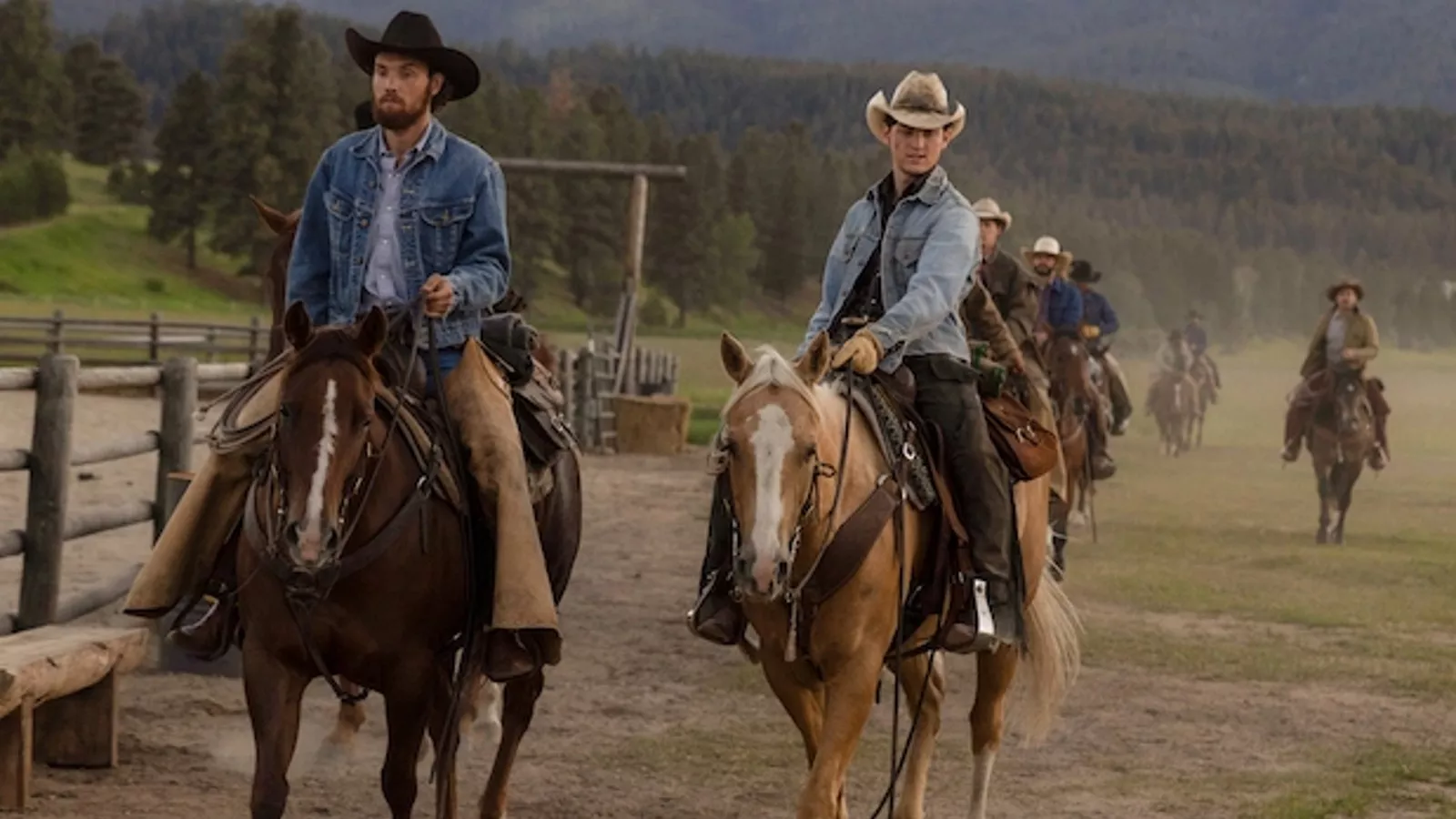The enthralling and rugged landscapes of the American West have been brought to life in the wildly popular television series “Yellowstone.” With its gripping storyline, complex characters, and stunning cinematography, the show has captivated audiences around the globe. However, many viewers may wonder: what book is the TV series Yellowstone based on? Unraveling this question unveils a fascinating narrative that combines elements from history, contemporary western literature, and the vision of its creator, Taylor Sheridan.
The Literary Foundation
Contrary to popular belief, “Yellowstone” isn’t directly adapted from a specific book. Instead, it is an original creation by Taylor Sheridan, known for his prowess in writing compelling narratives set against the backdrop of the American West. Sheridan, an accomplished screenwriter and director, crafted the series, drawing inspiration from various sources that resonate with the essence of the western frontier. While the show doesn’t directly derive from a singular book, its themes, character dynamics, and the spirit of the land are deeply rooted in the legacy of western literature.
The Legacy of Western Literature
Western literature has a rich history steeped in tales of the frontier, exploring the clash between civilization and the untamed wilderness. Authors like Larry McMurtry, Cormac McCarthy, and Louis L’Amour have contributed significantly to this genre, portraying the harsh realities and romanticized notions of life in the West. Their works resonate with the themes and elements echoed in “Yellowstone,” albeit indirectly. McMurtry’s “Lonesome Dove,” McCarthy’s “Blood Meridian,” and L’Amour’s extensive collection of western novels stand as pillars within the genre, influencing contemporary portrayals of the American West in various mediums, including television.
Historical Echoes
While “Yellowstone” isn’t based on a specific book, its narrative does draw on historical elements and events that have shaped the American West. The series intertwines threads of historical realities, such as the conflicts over land, resources, and the struggle for power that characterized the region during the frontier era. The Dutton family’s ranching dynasty, the central focus of the show, mirrors the struggles of real-life cattle barons and landowners who battled for control over vast stretches of land in the late 19th and early 20th centuries. By incorporating these historical echoes, “Yellowstone” captures the essence of the West’s tumultuous past.
Taylor Sheridan’s Vision
As the creative force behind “Yellowstone,” Taylor Sheridan meticulously constructed a world that pays homage to the essence of the American West. His vision combines elements of western literature, historical context, and contemporary storytelling to create a multifaceted narrative that resonates with audiences. Sheridan’s background as a writer with a deep appreciation for the West’s rugged beauty and intricate complexities shines through in the series. While not directly based on a single book, Sheridan’s own experiences and understanding of the region contribute significantly to the authenticity and depth of “Yellowstone.”
Character Dynamics and Themes
The characters in “Yellowstone” are complex, multifaceted individuals whose motivations and actions are deeply intertwined with the landscape they inhabit. While not directly lifted from any particular book, these characters echo archetypes found in western literature. John Dutton, the patriarch of the Dutton family, embodies traits reminiscent of iconic figures from western novels—a blend of strength, resilience, and a fierce determination to protect what’s his, akin to characters found in works by authors such as McMurtry and L’Amour.
Moreover, the themes explored in “Yellowstone” resonate with those commonly found in western literature. The clash between progress and tradition, the struggle for control over land and resources, and the intricate dynamics of power and family are recurrent motifs in the genre. While the series doesn’t derive from a specific book, it skillfully weaves these themes into its narrative fabric, drawing on the legacy of western literature to create a compelling story.
Impact and Reception
Despite not being a direct adaptation, “Yellowstone” has struck a chord with audiences worldwide. Its blend of drama, intrigue, and stunning visuals has garnered widespread acclaim and a dedicated fanbase. The series’ ability to capture the rugged beauty of the American West while exploring complex human relationships has been praised by critics and viewers alike.
The absence of a direct source material in the form of a book hasn’t hindered the show’s success. Instead, it has allowed Sheridan and his team the creative freedom to craft a narrative that pays homage to the spirit of the West while offering a fresh perspective on timeless themes.
Conclusion
While the TV series “Yellowstone” isn’t directly based on a specific book, its roots delve deep into the rich soil of western literature, historical context, and Taylor Sheridan’s vision as a storyteller. The absence of a single source material doesn’t diminish the show’s authenticity or its ability to resonate with audiences. Instead, it stands as a testament to Sheridan’s ability to draw inspiration from a wide array of influences, creating a modern narrative that encapsulates the rugged beauty, complexities, and enduring allure of the American West. As viewers continue to be captivated by the trials and tribulations of the Dutton family, the question of what book “Yellowstone” is based on serves as a reminder of the diverse tapestry from which great storytelling emerges.
























